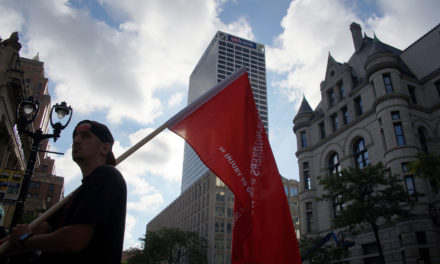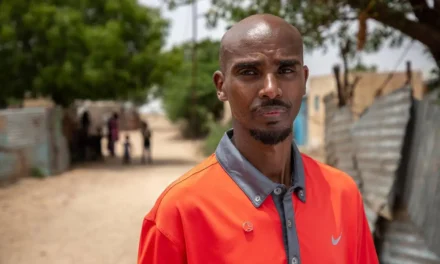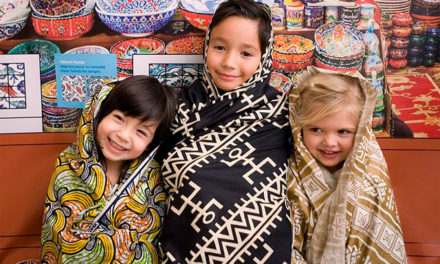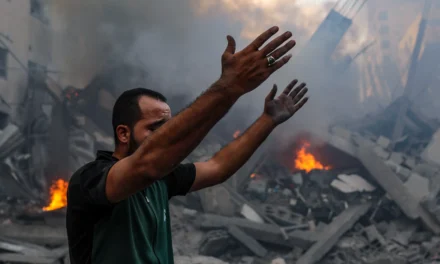Presiding over one of the poorest boroughs in London, Bangladesh-born Muslim, Rabina Khan, a Shadwell area Councilor, hopes to turn London’s Tower Hamlets borough area around if she wins the mayoral election on May 5. The city covers most of the traditional East End of London, which has a Muslim population of over a third, the highest number in the country. She has lived in the borough herself for more than half of her life and is raising her family there while juggling an eventful political career that spans over a decade.
Khan was first elected in 2010 as a Labor party councilor but following a political falling out she moved to the Liberal Democrat party. She was the first councilor to work with the local police force and helped introduce the Lethal Weapon Searches program in 2017 to address issues such as youth knife crimes and acid attacks. Affordable housing and the rights of disadvantaged people is the foundation of her current mayoral campaign, it’s an issue close to her heart since becoming the first Muslim woman to hold the Housing and Regeneration portfolio until 2015. This project helped create more than 4,500 homes in the borough.
If Khan is elected Mayor, she will make history as the first Liberal Democrat Muslim female to do so in the area. As a Muslim woman of color, Khan chooses to handle negativity in a positive manner. Working in a predominantly white, male field has forced her to reflect on the experiences she has had and learn from them. Being a hijabi, Khan says the first thing most people notice about her is her headscarf and assumptions are made that she is forced to wear it. She hopes to change this narrative by speaking about her experiences and encouraging others to do the same.
“I don’t speak the change, I make the change,” Khan said.
American Muslim Today: How did you get into politics? Was this always a goal?
Rabina Khan: Although I had a career history of writing, broadcasting and community work and was always driven to help people, I never thought that I would become involved in politics. However, I realized that I was better able to give a voice to the marginalized and disadvantaged by entering politics and fighting for the rights of my community — not just the Muslim community, but my entire community — for children suffering neglect and ill-treatment, for those in the poverty trap, for the lonely and the homeless and for anyone having difficulties with a diverse range of issues.

Pictured: Khan with her supporters
AMT: How is your mayoral campaign progressing, what are your political priorities?
RK: From the moment that I decided to run for mayor, on two subsequent occasions, it was important to let residents know that I was always accessible, which is the essence of public duty. I spent many weeks walking the streets of Tower Hamlets and meeting local people and business owners from all walks of life. It was important to establish what their concerns were and the areas that they felt needed addressing. In particular, I wanted to work towards an open, tolerant, safe and more equal Tower Hamlets where no one is left behind. I distributed introductory letters and campaign leaflets, highlighting the areas that I wanted to address, and created a detailed manifesto, expanding on these aims.
With hopes of helping the economy post-Brexit, I want to promote local businesses, big and small. Bringing attention to greener and more sustainable alternatives is another goal as well as inward investments to benefit the residents of Tower Hamlets. Tower Hamlets’ land is valuable and so are our communities.

AMT: What do you believe sets you apart from other candidates vying for the same position?
RK: I have a genuine desire to prioritize the needs of people over private political gains and interests and have a credible vision for the future of the borough. Tower Hamlets is one of the most culturally diverse boroughs in the country, so as a British-Bangladeshi, I understand many of the struggles faced by minority communities and the challenges they face when seeking help, education, employment opportunities and social justice.
I encourage other women to believe in themselves, pursue their dreams — regardless of background — and teach them not to be fazed by criticism or other barriers. I promote quality, integration and tolerance in a nation that has been plagued by Islamophobia, anti-Semitism, poverty, deprivation and the exploitation of women of all faiths.

Pictured: Khan speaking during a protest against the relocation of the Chinese Embassy in London / image courtesy of Shutterstock
AMT: How do you factor your faith into politics?
RK: Reconciling my faith with a career in politics is no different to anyone else reconciling their lifestyle with their chosen career. Regardless of our background or beliefs, we are all related by common dreams and hopes for the future. In fact, British Muslim women have used their faith as a platform for politics and gaining a stand in the public arena rather than being constrained. Prominent Muslim women have helped dispel stereotypes and the many myths surrounding their faith and have shown how faith does not have to be a barrier to success. Many Muslim women have been inspired by my success and also relieved to be able to talk to someone who understands their struggles; someone who can campaign for their voices to be heard.
By Hedija Spahalic














